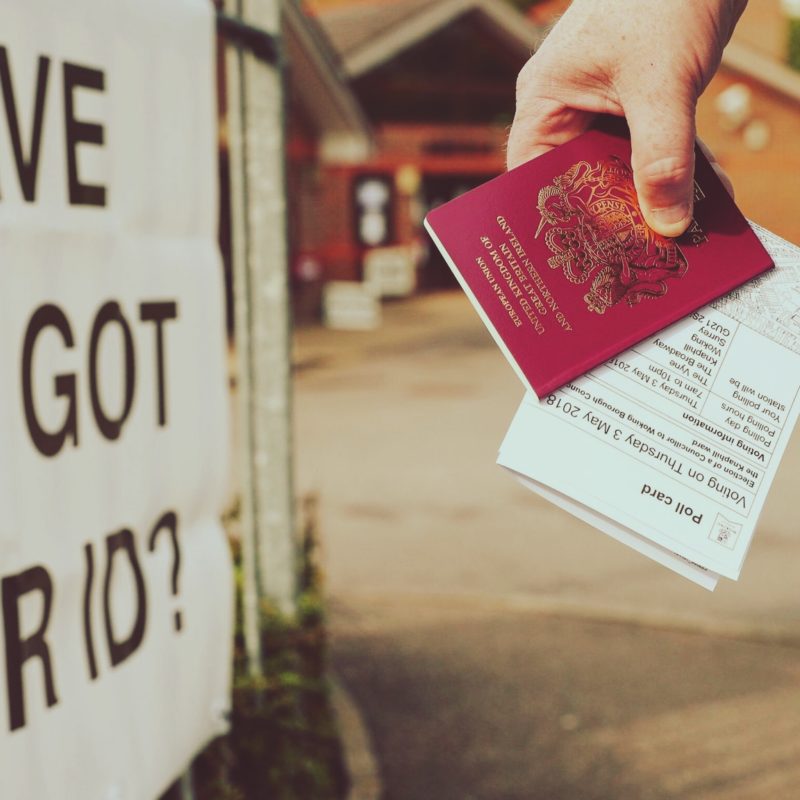Beverley and Holderness Labour Party

In May we will see the latest set of elections in local government up and down the country. It will be a chance for everyone to vote in people who will represent their area and make their communities the best possible place to live.
It will be an important time and a chance to see if Tory controlled local authorities can withstand the pressure created by the negative national press.
A new part of the process will be the requirement to produce ID in order to cast your vote at the ballot box. This was introduced by the Tory government as part of an effort to reduce voter fraud.
This is certainly something that exists and can be particularly bad in other countries. However, it is extremely rare in the UK and can be barely even considered a problem. The subject of voter participation is far more important.
Essentially, the Tories are creating a solution for a problem that doesn’t exist and, what’s more is that it could actually prevent some from participating.
Forms of ID
According to the Electoral Commission, the following are acceptable forms of photo ID:
- Passport
- Driving licence
- Blue badge
- Older person’s buss pass
- Disabled person’s bus pass
- Oyster 60+ card
- Freedom pass
- Other forms of regional ID for Wales, Scotland and Northern Ireland
It’s quite a wide range, so in theory there shouldn’t be any problems. However, the government’s own research shows the following:
- 9% don’t hold a passport
- 19% don’t hold a driving licence
- 81% don’t hold some form of travel pass
- 24% don’t hold a passport and driving licence
- 84% don’t hold a passport and travel pass
- 88% don’t hold passport and travel pass
- 9% of people do not have any form of in date or recognisable photo ID
98% of people that were surveyed have some form of photo ID. However, this is misleading as for many that form can no longer be classed as recognisable. That means it could actively prevent you from being able to vote.
It’s also worth mentioning that amongst the gypsy and traveller community, only 34% hold a passport.
Voter Authority
For those who don’t have a recognisable form of photo ID, you can apply for a Voter Authority Certificate. It says you need a up to date digital photo of your self and NiNo (National Insurance Number). However, if you don’t have a NiNo, you can still get a certificate if you supply a utility bill, bank statement and birth certificate.
Many people don’t have a plastic NiNo card anymore as the requirement to issue them was ended many years ago and letters are sent nowadays. If you don’t have a letter, it is possible to obtain your number, but it is an extra step.
Research shows that 42% of those with no photo ID would be unlikely or very unlikely to apply for voter ID card/certificate. 39% of those without photo ID believe this requirement would make voting difficult. This could mean that they are less likely to vote. This research is confirmed by the Electoral Reform Society, who reveal that just 10,000 have applied for a Voter Authority Certificate as of 1 February 2023.
A non-existent problem
The Electoral Commission has some interesting statistics on voter fraud. In 2017, the vast majority of accusations ended up in no further action. Only 11 of the cases led to cautions. In 2019 there were 164 allegations of electoral fraud in the General Election. There were no convictions based on someone voting multiple times. There was only one case of vote tampering, but this was based on someone getting hold of a ballot box.
In conclusion…
Of course, Graham Stuart thinks it’s a good idea. He follows the party line and thinks it strengthens electoral integrity. Sadly, he hasn’t looked at the statistics of the electoral commission or the government’s own research. If he did, he’d realise this is a pointless effort that will only end up creating barriers to voting.
In theory, you could have been on the Electoral Register for several years, but not be allowed to cast your vote on election day. Reports show that 60% of people don’t even realise that they won’t be able to vote.
Postal voting remains unaffected, but the majority still go to the ballot box. It’s uncertain if voter ID will see a change in this.
The bigger question is how to increase registration and participation. To this day, so many people of voting age are not on the electoral register. Only 48,844,292 are registered for local elections. We need more people participating, not fewer.
This is a failure of a policy that only creates barriers.
